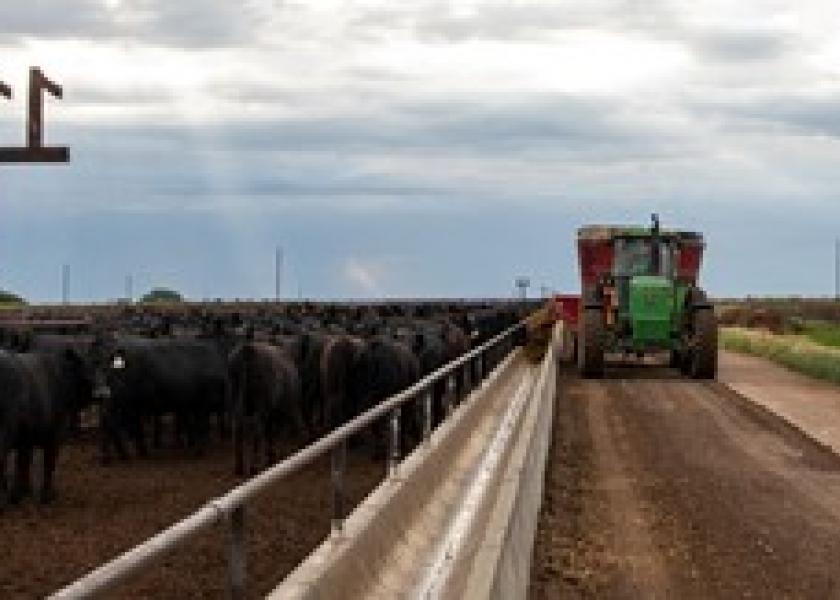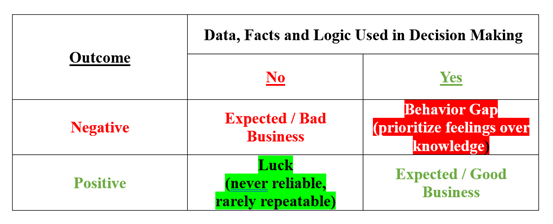Speer: Data, Facts, And Logic

Email: Readers ALWAYS provide the best insights! I recently received an especially meaningful email from a producer after reading Yelling Imports In A Crowded Salebarn. I’m confident it’s the first email I’ve ever received from someone who stopped in the middle of feeding cattle to share his thoughts from inside his tractor.
The reader started out by with this: “I happen to completely agree with your opinion…” I read that thinking that’s never really my intent nor priority. But my reader was already ahead of me. He immediately qualified his statement with, “…but that doesn’t matter…”. Precisely!
Decision Making: All that sets up the important part. He then goes on to say, “…because what I really appreciate are the methods you use to present your take on the matter…Data, facts and sound logic should guide our decisions and path forward.” Amen brother!
As I read his prioritization, I was reminded of a slide I commonly include in presentations that highlights the importance of data (and facts and logic) relative to decision making. The slide features a 2X2 grid comparing use of data and subsequent outcomes. For this discussion, let’s focus on the cross-over quadrants (the expectations of bad versus good business are self-explanatory):
- Behavior Gap
- Luck

Behavior Gap: I’ve written about the phenomenon in a previous column. The discussion dealt with some of the enterprise and profitability data from the Kansas Farm Management Association (KFMA). I noted that “…no one wants to be in the bottom-profit group…it’s one thing to see the results, but it’s another to really do something about it.”
Behavior Gap is the name of Carl Richards’ website. Richards often focuses on the shortfalls when we rely on emotion in our decision making. To that end, one of my favorite Richards sketch reads “knowledge or feelings – choose carefully”.
Scott Peck discusses the same principle in his book, The Road Less Traveled. Peck explains many people see the beginning – where they are now. And they can envision the end – where they want to go. But most people are unwilling to go through the middle – that is, they lack the discipline and/or diligence to follow-through. And the KFMA discussion ended with this observation: “Data utilization to drive decision making is conceptually easy to talk about; to really do it, is another matter. But those operations that do implement the discipline to follow through clearly reap the benefits on the other side.”
Luck: That brings us to the other quadrant. Luck is not a meaningful strategy. In the absence of data, facts and logic, favorable outcomes are never reliable nor rarely repeatable. Unfortunately, too many people assign luck to other peoples’ success. Same root cause – they don’t want to do the work – and assume other people feel the same and act accordingly.
I’m reminded of an editorial written by Frayda Levin sevreral years ago in the Wall Street Journal – “Lady Luck Didn’t Make Me Successful”:
I’m astonished at how many young people believe luck is a significant factor in success... Yet today we often hear about how the successful are lucky…Maybe we need an organization to coach college students to approach life understanding that they are masters of their own fate. True, no one can control when a hurricane hits or a server crashes. But we all control how we respond to the challenges the world delivers.
Mrs. Levin ends her column with a famous quote from Thomas Jefferson: “I’m a great believer in luck, and I find the harder I work, the more I have of it.”
Crossover: How does all this relate? Both the behavior gap and luck quadrants stem from the same root cause – avoidance of implementing data and facts to their decision making – that is, doing the hard work. Jim Collins points out that our “capacity to deny brutal facts is immense”, hence we don’t do anything about it.
My reader understands all this; he prioritizes the importance of doing the hard work and making decisions the right way. And thus he ends his email restating the premise from the start: “…our industry needs to make decisions based on data, facts and logic.”
Nevil Speer is an independent consultant based in Bowling Green, KY. The views and opinions expressed herein do not reflect, nor are associated with in any manner, any client or business relationship. He can be reached at nevil.speer@turkeytrack.biz.







